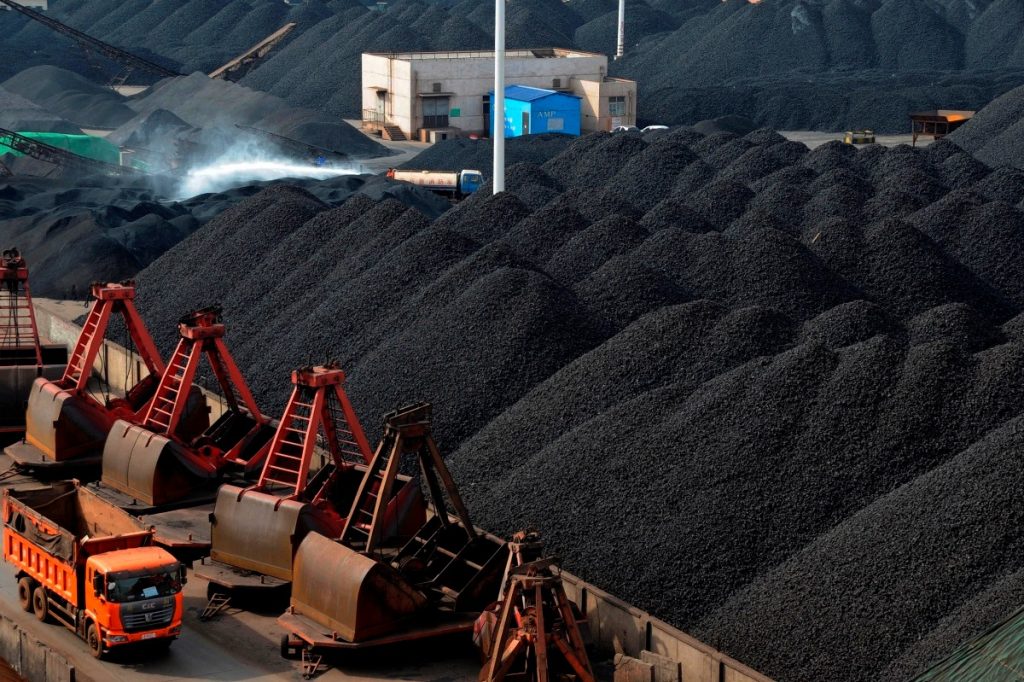26 aprill

After the release of one of the most comprehensive climate change reports ever published, experts are calling for the complete abandonment of fossil fuels.
UN Secretary-General Antonio Guterres said the IPPC report serves as a “wake-up call for humanity.”
The last five years have been the hottest on record since 1850, and to stop or perhaps even reverse the temperature rise, we must halve global emissions by 2030 and reach zero by 2050.
“This report should be the death knell for coal and fossil fuels before they destroy our planet,” Guterres said.
“Countries should also stop all new research and production of fossil fuels and transfer fossil fuel subsidies to renewable energy sources.”
So, which countries are already leading the way in bans on exploration and extraction of fossil fuels?
6. France
In 2017, the French Parliament passed a law banning oil and gas production in all its territories by 2040. No new permits for the extraction of fossil fuels can be issued, and existing licenses cannot be renewed after the deadline.
The ban is largely symbolic, since the country produces only the equivalent of 815,000 tons of oil annually – the same amount is produced in Saudi Arabia in a matter of hours. But lawmakers hoped it would serve as an impetus for other, larger fossil fuel producers to follow suit.
5. Greenland
Earlier this year, Greenland's newly elected Socialist-led government put climate issues at the center of its policy. As one of its first steps, it banned all new oil exploration in July, ending a 50-year quest to become an oil-producing country.
Despite the extensive history of using fossil fuels, the government says that now “the price of extraction is too high” both from an economic point of view and from an environmental point of view.
“This step was taken for the sake of our nature, for the sake of our fishing, for the sake of our tourism industry and in order to focus our business on sustainable potential.”
4. Denmark
In 2020, Denmark agreed to ban new exploration and stop producing oil and gas in the North Sea by 2050. This was part of the country's efforts to achieve “climate neutrality” in the coming decades, which includes a law mandating a 70% reduction in 1990 emissions by 2030.
It is also the second country in Europe to set a date for the complete cessation of oil and gas production after France. Denmark is one of the largest producers on the continent with an annual production of more than 7000 tons of oil.
“Now we will end the era of fossil fuels and draw a direct line between our activities in the North Sea and the goal of climate neutrality by 2050,” Climate Minister Dan Jorgensen said in a statement.
3. Belize
To protect its fragile coral reefs, Belize passed a law in 2018 banning oil exploration and production in all its waters.
The Belize Barrier Reef is the second largest in the world after Australia and is home to about 1,400 different species of marine life. An oil spill here or in the surrounding waters would have catastrophic consequences for this vital habitat and tourism industry, which employs half of the country's population.
Although the country produced only about 3,000 barrels of oil a day, it was a victory for both the diverse marine life that the reef supports and for environmental groups that have been lobbying for a government ban since 2006.
2. Spain
Spain approved a climate law in May 2021 that will end the production of fossil fuels in all its territories by 2042.
From the moment of signing, the decree prohibits all new coal, gas and oil developments, and also enshrines in law the cessation of the use of fossil fuel vehicles by 2040 and sets a goal to generate 74% of the country's electricity from renewable energy sources by 2030.
“For the planet, for our future and for the next generations. From today, a climate law is in effect in Spain, the purpose of which is to build a green, sustainable, fair and prosperous future for everyone,” Prime Minister Pedro Sanchez tweeted after voting in May.
1. Ireland
Earlier this year, Ireland passed a law banning licenses for new oil and gas exploration.
“The decision taken today to legislate a ban on new oil exploration and production will be a powerful signal,” Minister of Environment, Climate and Communications Eamon Ryan said in a statement.
“By keeping fossil fuels in the ground, we will stimulate the transition to renewable energy sources and pave the way to zero by 2050.”
Source: Еuronews.com
Illustrative photo © investlair.ru

